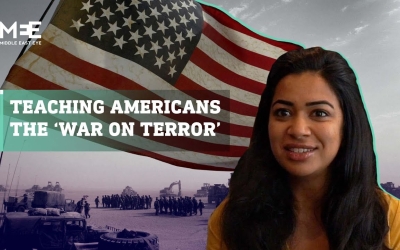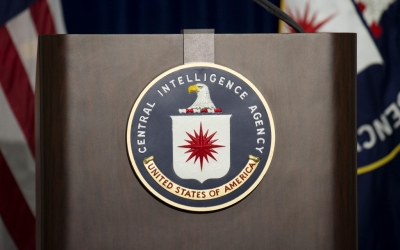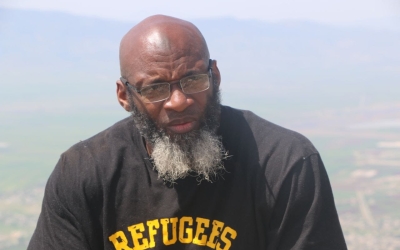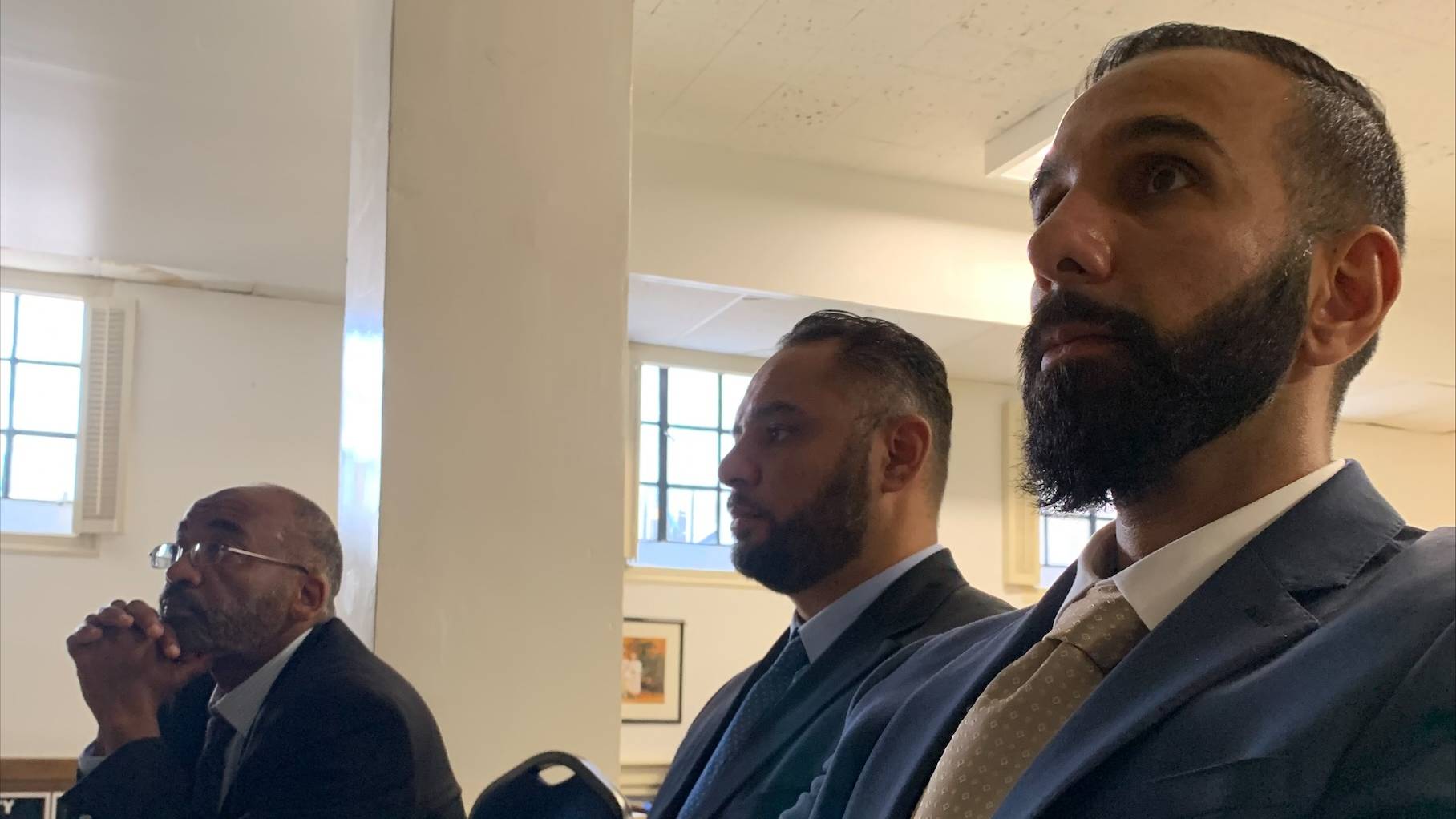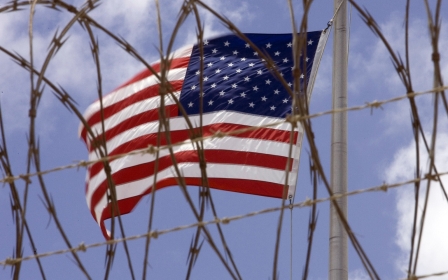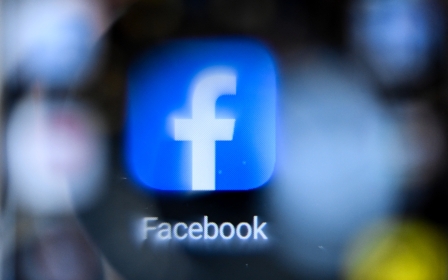How an FBI informant destroyed the fabric of an entire community
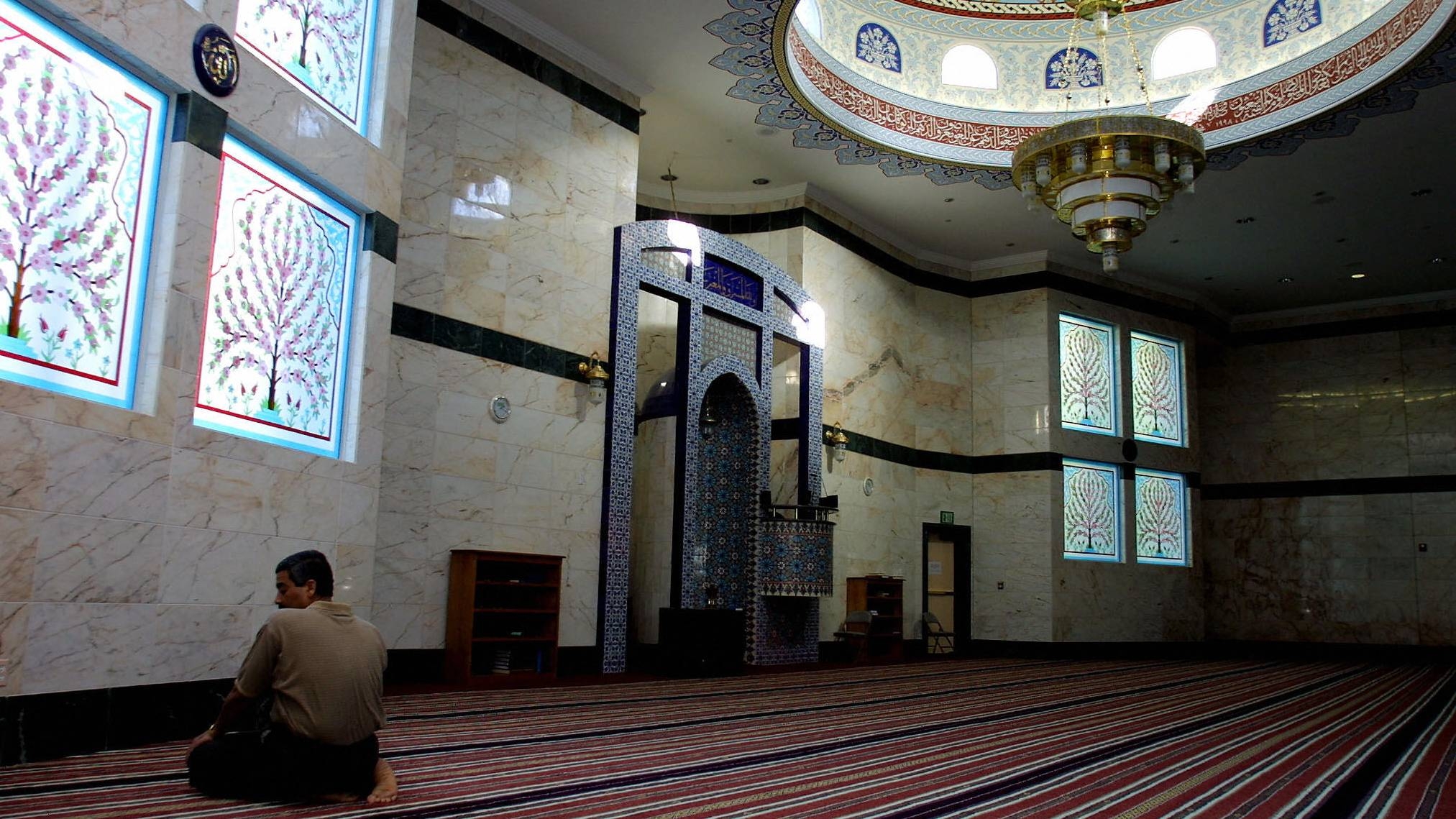
During the early 2000s, the Muslim community in Southern California was thriving. While the faith group as a whole was dealing with a deluge of Islamophobic attacks post 9/11, the Muslim community in the suburbs of Los Angeles seemed to be expanding every day.
Soon after the doors of the Islamic Centre of Irvine opened in 2004, it was regularly welcoming around a thousand people for Friday prayers.
"I don't use this word sanctuary lightly. It was exactly that, a sanctuary. It was literally a place where you can get away from the hustle and bustle of the day to day. You can get away from the media onslaught on Muslims post-9/11 and you can come to a location where you can feel proud and at peace with being Muslim," Ali Uddin Malik, a member of the community, told Middle East Eye.
Then one day in May 2006, the community was awoken to the realisation of their worst fears. A local newspaper reported that the US government was monitoring and spying on the community in order to "detect potential terrorists".
In order to ease everyone's concerns and say that they were not in any danger or harm of being swooped up in the post 9/11 surveillance war that targeted mosques across the country, the FBI assistant director in Los Angeles, Stephen Tidwell, held a town hall meeting that June.
There, he said openly and clearly that the FBI would not be sending informants to mosques.
"A lot of people believed it. And it's understandable to believe a very high-level government official telling them what he said they were going to do. Obviously, it turned out to be a lie," Ahilan Arulanantham, a former ACLU attorney and co-director of the Center for Immigration Law and Policy at UCLA School of Law, told MEE.
A month after the town hall meeting, the FBI sent Craig Monteilh, otherwise known to many in the community as Farouk al-Aziz, to spy on California's Orange County - home to multiple mosques and 120,000 Muslims at the time.
What followed was a FBI campaign spanning between 2006 and 2007 called Operation Flex, which locals say tore apart the fabric of the Muslim community.
The events became embroiled in a legal case that has made its way all the way up to the Supreme Court, which heard oral arguments in the case on Monday morning. Members of the community are hoping they will be able to salvage some semblance of justice more than a decade later.
However, some community members noted that the wounds will likely remain unhealed for years to come.
'No way the FBI could be this dumb'
Many of the Muslims who met Monteilh welcomed him with open arms, hoping to provide help in his transition to his new faith, which he was lying about as it was part of his cover.
Ali Uddin Malik was one of the first people to meet him after witnessing him take the shahada - the testimony of faith that people take to convert to Islam - on a Friday afternoon after prayers. Malik, who was at the time a prominent member of the mosque, was tasked by the imam with helping Monteilh learn the ropes, and guided him in learning how to pray.
Malik spent several weeks fielding questions about the faith's tradition with Monteilh, until one day the conversations turned to the topic of jihad.
'I thought there's no way the FBI could be this dumb. It was too obvious'
- Ali Uddin Malik
He repeatedly told Monteilh of the importance of the greater jihad, the spiritual battle inside the self rather than the outer world.
Yet Monteilh was not interested in that and was relentless in pushing questions about violence.
"He was asking, which imams around here have an interest in violence? And who would support it? And tell me more about jihad, tell me more about jihad, tell me more about jihad."
Malik was extremely concerned, but at that point did not think he was being entrapped. "He jumped into it so quickly that I thought there's no way the FBI could be this dumb. It was too obvious."
Yasser Abdelrahim had a similar interaction with Monteilh, whom he spent time working out with, meeting at coffee shops, and even playing video games at his house.
Abdelrahim wanted him to feel like a close member of the community. However, those sincere efforts turned sour after Monteilh began to bring up violence and jihad to him.
Soon, he was getting numerous calls from concerned friends, as Monteilh was asking them to join him in violent plots.
'A bomb ready in the kitchen'
After several more of these interactions, Malik and Abdelrahim had had enough and told Hussam Ayloush, the director of the Los Angeles chapter of the Council on American-Islamic Relations (CAIR).
For Ayloush, this was one of many tips he had heard about Monteilh. The CAIR director said that two other Muslims who befriended Monteilh called and explained the informant had gone with them on a drive to a mosque in Culver City, where he asked them to join a terror plot.
Mohammed El-Sisy and Ahmadullah Niazi said that Monteilh had said that he "had a bomb ready in my kitchen" and was asking them for a target in Orange County.
Despite trying to convince him against the act and also trying to get themselves out of the situation, Niazi had his life forever upended by that moment.
After reporting Monteilh, the FBI later arrested Niazi on perjury and immigration-related charges and during a court hearing, described him as a terrorist sympathiser with links to al-Qaeda leader Osama bin Laden. While the charges were dropped, Niazi's entire social circle distanced themselves from him, the CAIR director told MEE.
Middle East Eye attempted to reach out to both Sisi and Niazi, but neither responded to a request for comment.
Ayloush went on to report Monteilh as a potential terrorist threat to the FBI who oddly seemed aloof about the situation. The agency thanked him but did not ask for any information about the threat.
"Just as he's about to hang up, I said, 'Wait, wait, wait, wait. Don't you need his name? His address?'" Ayloush recounted of his conversation with the FBI, which made him suspect Monteilh was a government informant.
Several months later, US authorities arrested Monteilh but not before he went on a rampage throughout the area. He sent death threats to various individuals and even physically assaulted Niazi, according to Ayloush.
'You've destroyed lives'
Ten miles away from the Islamic Center of Irvine, at the Orange County Islamic Foundation in Mission Viejo, Imam Yassir Fazaga spent years dealing with his memories of Monteilh.
Fazaga had only met and interacted with Monteilh on one occasion, but had heard, through others, of his provocative conversations.
But he had later learned that the informant had planted recording devices in his office at the mosque.
The imam served not only as the spiritual leader of the community but also as its arbiter and its keeper of secrets. A licensed psychotherapist, Fazaga held dozens of counseling sessions a week where people would share intimate and private thoughts and personal problems.
So when he found out about the recording devices, he said he was infuriated.
For Fazaga, it wasn't just his own trust that was shattered by what happened. He saw the entire community torn apart in the aftermath, and it was difficult for him to face his friends and acquaintances.
"They ruined trust. The most important element in any healthy human relationship is trust. For many people, coming to the mosque, going to the synagogue, going to church, is like going to their second family.
"And when you are a family, the last thing you want is to have to question the genuineness of the relationship."
Monteilh later gave a detailed account of the operation in public media interviews and press conferences, including a claim the FBI had ordered him to have sexual relations with Muslim women.
Monteilh had worked with the ACLU in order to provide a detailed account of his activities, and also came out and sought forgiveness for his actions.
Yet for community leaders like Ayloush, his words rang hollow.
"I didn't trust him. I told him that. I said 'Once a con artist, always a con artist. Maybe you're sincere, but the problem is what you've done to the community, you've destroyed lives'," Ayloush said.
State secrets
Fazaga, Malik, and Abdelrahim worked with CAIR and the ACLU to file a lawsuit against the FBI in 2011, hoping to hold the government accountable for its espionage campaign.
Now, after a decade of litigation, the trio face the United States Supreme Court, heard oral arguments as to whether their case merits being thrown out on the grounds of state secrets - a legal mechanism used by the government to bar classified information from being divulged in a court.
The case is one of two at the Supreme Court this year dealing with the issue of state secrets. The other being the case of Abu Zubaydah versus the United States, in which a Guantanamo detainee is seeking to obtain details surrounding his torture at a CIA black site allegedly in Poland.
For the three Muslim Americans, this case is about cementing the FBI's actions as being wrong and immoral in the confounds of US history, and not being relegated to an anecdote in America's "war on terror".
"I look at this as an opportunity to hopefully prevent this from happening to anybody else, regardless of whether they're Muslim or not," said Abdelrahim.
"This case has been going on for 10 years or so now. All I'm asking for is again is just a fair trial to really look at things and see whether there were transgressions, violations of privacy.
"Doing that will help restore some faith in the system."
The FBI's Los Angeles bureau told MEE that it does not comment on ongoing litigation.
Scars that will never heal
While the Supreme Court case has the opportunity to bring some semblance of justice for Fazaga, Malik, Abdelrahim and the Muslim community in Southern California, much of the damage seems irreparable.
Niazi, who also reported Monteilh, had been targeted by the FBI and had his business raided and was publicly named a terrorist suspect. Despite having charges against him dropped, the label had forever damaged his relationships with the community and his family, Ayloush said.
'The mosque used to be part of my identity. Now I just use it as a house of worship'
- Yasser Abdelrahim
Abdelrahim said the entire meaning of what a mosque is has changed forever.
"This experience really has had a major significant impact on me whether it's trusting people or making me wonder about whether I should go to the mosque," he said.
"The mosque used to be part of my identity. Now I just use it as a house of worship. I've limited my time and interactions there."
Malik, the other plaintiff in the court case, said that in the immediate aftermath of the incident, he stayed away from the mosque and still cannot get himself to be as involved as he used to be.
"I shifted from working within the Muslim community and I made a radical shift and I joined health care where I could just turn that off and not have to directly deal with it," he said.
"The trust and confidence also took a toll. I used to always want to get involved, exchange numbers and now there's no way I could do that ever. I have family. I can't put them at risk."
Middle East Eye propose une couverture et une analyse indépendantes et incomparables du Moyen-Orient, de l’Afrique du Nord et d’autres régions du monde. Pour en savoir plus sur la reprise de ce contenu et les frais qui s’appliquent, veuillez remplir ce formulaire [en anglais]. Pour en savoir plus sur MEE, cliquez ici [en anglais].


